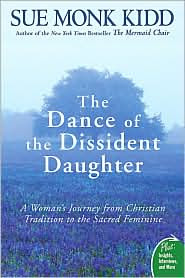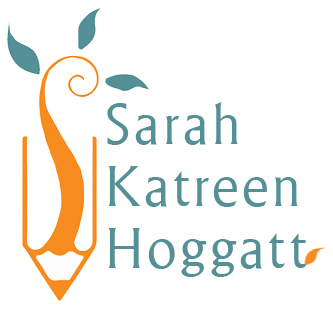I want to talk to you a lot more about the Feminine Divine. To do this though, I first want to share with you how I became interested in this topic and how it has changed me.
It all started innocently enough. Sister Antoinette, a woman I enjoy visiting with out at Mt. Angel Abbey, suggested I read “The Secret Life of Bees”. Having no idea what it was about, (how bees miraculously fly perhaps?), I didn’t track it down. On top of that, with all of the reading, projects, and papers I had to complete before finishing my graduate degree, I didn’t have a lot of time budgeted for extracurricular reading. However, I quickly learned God has a very different idea of the difference between extracurricular reading and reading that is required.
I was house sitting in the fall for a professor/friend of mine up in Vancouver, Washington over Thanksgiving. Having many of the same intellectual and spiritual interests as I, which would make sense considering how many classes I had with her, I was really looking forward to having access to her personal library. Looking through her shelves, I came across her copy of “The Secret Life of Bees”. I was soon enthralled with the story. It’s about a white teenager who escapes from her physically abusive father and finds herself at the home of “the calendar sisters”-May, June, and August, three black women who worship the black Madonna. They raise bees and sell their honey, teaching the girl the business and helping her to heal along the way. I loved it, it was a fantastic story and it was my first foray into the feminine divine. I told the woman I was seeing for spiritual direction at the time about the book and she suggested I also read “The Mermaid Chair” and “The Dance of the Dissendant Daughter” both by the same author. I was still finishing my program so put I them off. God though, did not.
Right before Christmas, I was on my regular rounds of author tables and holiday bazaars. I love doing these for not only do I get to talk with the public about my books, but I also get to “talk shop” with the other authors, always one of our favorite parts of any fair or bazaar. Next to me was Dolores Dahl, one of my favorite poets who is also a dear friend. She was reading, you guessed it, “The Mermaid Chair”! Seeing my interest, she told she would mail it to me when finished. A few weeks later, the book showed up in my post office box with the note I could keep it. This book pissed me off. It’s written well and reminds me a bit of the island my aunt lives on I love to spend time at, but it is about a woman’s discovery of her deep femininity, creativity, and power within through having an affair with a monk. The monk part didn’t bother me, neither did the sexual content, it was the possibility of divorce without caring for the other partner. A friend of mine was going through a divorce at the time so it was hitting too close to home for me. However, after reflection, I really appreciated this woman’s discovery of her inner strength and her artistic expression.
Now I was intrigued. “The Dance of the Dissident Daughter” was supposed to be the author’s auto-biography. While talking with a friend nearly a year later, she told me she had a copy of a book in her car she had previously mentioned to me. When she handed the book to me, I was shocked, it was of course, “The Dance of the Dissident Daughter”. I think God knew I needed to read the two fiction books before delving into this one. This one, knocked my socks off and opened up a whole new world of truth and reality. This woman studied the feminine divine for herself after becoming fed up with the overwhelming male images in the Christian church. I love being told a good story and thoroughly liked this one. Though from the perspective of a middle-aged woman, I still got a lot from it.
This book launched me into my own study of the feminine divine. Soon I was perusing books such as “History of the Goddess” and “Women Who Run with the Wolves”. Online, I looked up sexuality, both for myself and in relation to my work as a spiritual director. The topic seemed to come up in conversations and being able to talk about what I was learning and sharing ideas with others was a gift. Then about a month ago, I was one of the speakers at the Pacific Northwest Quaker Women’s Theology Conference where I attended a workshop on “The Feminine Divine”. Sitting there in a lively discussion, I almost cried, it felt so good to hear other women use the word “Goddess” and exploring the beauty of upholding feminine images of God alongside the masculine ones so prominent in our culture. I also came away with another book to read. I don’t have the title with me at the moment, but it will be fun to see how God brings it across my path just when I need to read it.
Because female images of God are mostly ignored at best, suppressed at worst, in many churches, those who embrace them live on the edges of the church, the fringe if you will. I am one of these. I am not happy with the rule-laden prevalent view of “living in faith”. I would rather break the rules than keep them for they bind far too many people in a rigid world where God embraces you only if you meet certain standards of looks and behavior. This should not be so. The God I know loves EVERYBODY, even those who bash the rules over other people’s heads as if to dent them into the shape they want. (By the way, this never really works. All it is doing is bashing that person’s soul.)


From a slightly different perspective, I think it is absolutely fabulous that Jesus was able to change the perceptions of God that were so much a part of the Old Testament, and show God as a loving Father. Radical shift there, and it’s too bad that a lot of that was lost in mainstream Christianity. There has been a lot of the OT image that has crept back in. Another counterpoint is that the feelings and perceptions that are associated with “feminine” are not just feminine, but human, and I think we need to back off of thinking in terms of male/female just as much for the liberation of men from that dichotomy as women. Having said that, I DO think it is appropriate to speak of and present God in terms of that kind of image of Della Reese you have presented. It works well, and it is needed as an antidote to presentation of nothing but the conventional Father concept. Incidentally, female divinities have not always been all sweetness and light either, as Robert Graves has noted, and Kali illustrates.
In His Love,
Nate Swift
PS. It occurs to me that in context, I should say that my normal signature line in talking about spirituality is a reference specifically to Jesus, historically a male, not His fault though.
What to say. I love this. One of the main things I love about Quakers is the space they seem to create for expressions of the femnine – i.e. honoring "that of God" in each. I have no profound thoughts right now but wil revisit this…